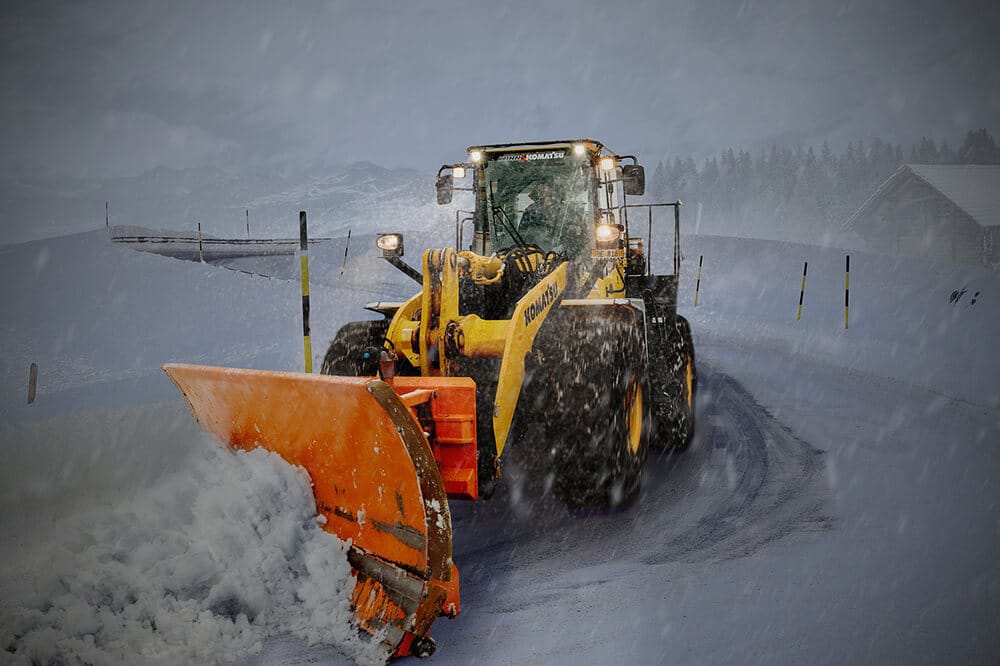The Dangers of Passing an Active Snow Plow
In the winter season, drivers need to be aware of the weather conditions that can affect their driving. Icy roads and inches of snow make the roads slippery and can lead to accidents. Treating and clearing the roads helps make them safer. The main vehicles that provide this essential service are snow plows. When you encounter a snow plow while driving, it’s important to keep some safety tips in mind so you know how to share the road.
What Should Drivers Be Aware of When Passing an Active Snow Plow?
The National Highway Traffic Safety Administration’s Winter Driving Tips warns drivers of several factors when they’re on the road with a snow plow.
Snow plows:
- Travel very slowly
- Need to stop often
- May overlap lanes
- Make wide turns
- Regularly exit the road
Keeping these points in mind, drivers should give snow plows a wide berth. Tailgating or driving in the lane beside a snow plow is not safe. Passing is also dangerous because as the car passes, they could get caught in what the plow is pushing away. Ice and snow could get sprayed on the driver’s windshield and they could lose visibility.
It’s also important to remember the road in front of the plow isn’t clear or treated for snow. So, if a car passes a plow, it’s likely going to be on a road with poor conditions, which could increase the risk of losing control of your vehicle.
If you’re on a road with a plow, it’s best to stay behind the plow and give them space. Following too closely could result in your car getting hit with the salt or sand the plow is putting on the roads or hitting the snow plow if it suddenly stops or turns without you knowing it.
What Other Information is Good to Keep in Mind?
On the Lake County, Illinois official website, local residents asked their snow plow operators questions about their job. Some important takeaways included questions about the hours operators work, the awareness of the drivers around them, and the unique difficulties they face when driving a heavy vehicle.
One of the drivers mentioned he doesn’t know when he’ll be called into work or what the current traffic conditions will be like. Unfortunately, this means a snow plow operator could be driving while drowsy or they could be driving in poor conditions, like in a blizzard at night. They also don’t know how busy the roads will be. If the roads are empty, the plows can carefully clear the roads in a consistent manner. However, if there is considerable traffic because cars have to move slowly or are stuck because of the weather, the plow drivers will have a more difficult time doing their job.
Another plow driver said he wants people to understand how these vehicles are difficult to maneuver, have limited visibility and less reaction time than a small car does. It’s important to give the plows plenty of space so they can clear the roads.
Plow drivers also worry about cars attempting to pass, because they often choose dangerous times to do so. One plow driver mentioned she may need to switch lanes, and while she always signals, drivers try to pass even while her vehicle’s signals are on, potentially resulting in a dangerous accident. She warns drivers that even if a plow operator is taking extra time to maneuver a turn, do not attempt to pass them if their signals are on.
Always Err on the Side of Caution
If you’re on Chicago roads in winter conditions and find yourself near a plow, driving slowly and cautiously will help you remain in control of your vehicle and navigate safely to your destination. Remember, the people in those trucks have more limitations in visibility and reaction time than you do, so maintaining your distance from these vehicles will decrease your chances of getting into an accident.
When it comes to winter driving, giving yourself more time to get to your destination and checking the weather could help you stay safer on the road. If you must leave your house to drive, plan to leave earlier so you’re not worried about racing the clock and you can focus on driving safely in the snow. However, if you were planning on running some errands and poor weather is projected to hit, deciding to stay in and leaving the errands for another day when the roads are clear is usually the safer call.
Krzak Rundio Gorman, Injury Attorneys Represents Injured Victims
Winter weather complicates driving. Even when you take the necessary precautions, you may be involved in an accident. If this has happened to you or a loved one, you may be eligible for compensation if the collision was caused by the wrongful or negligent actions of another. Call our office today to speak with one of our experienced lawyers about your options.











